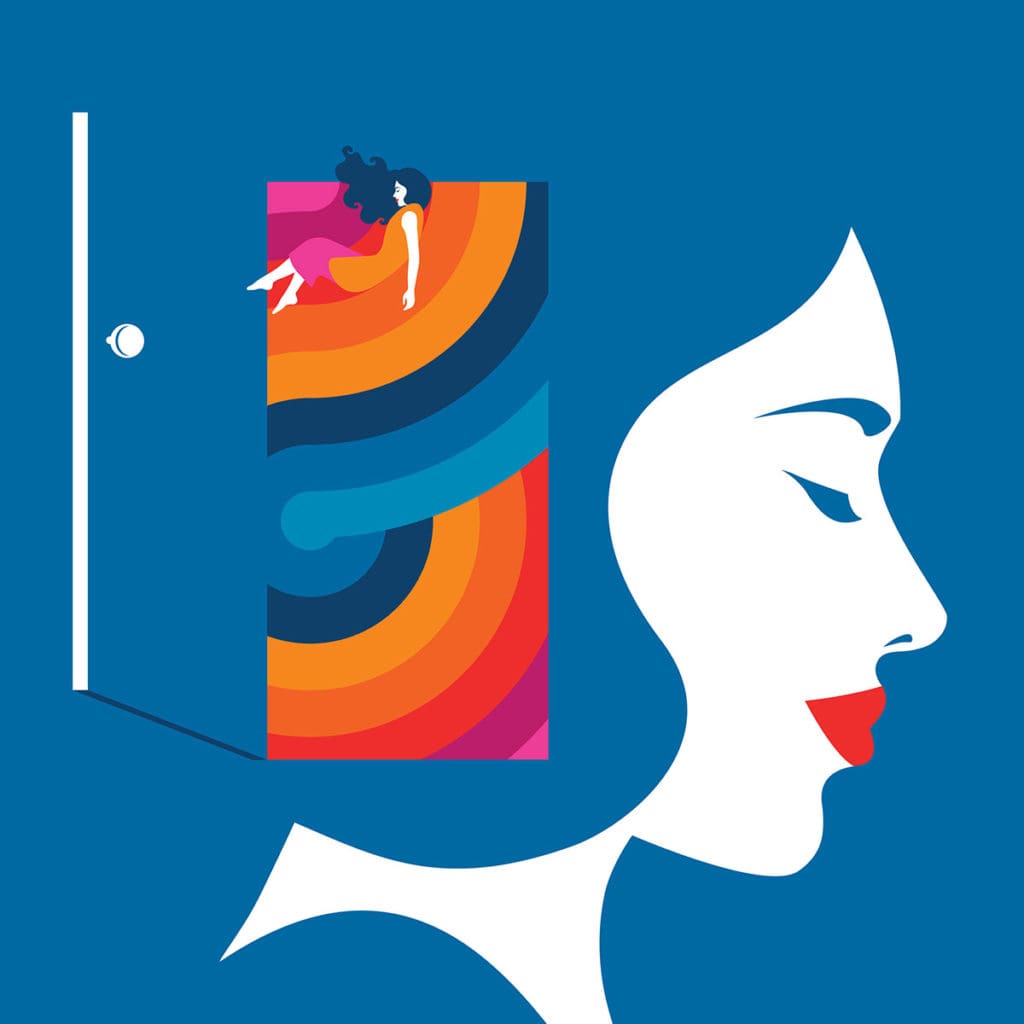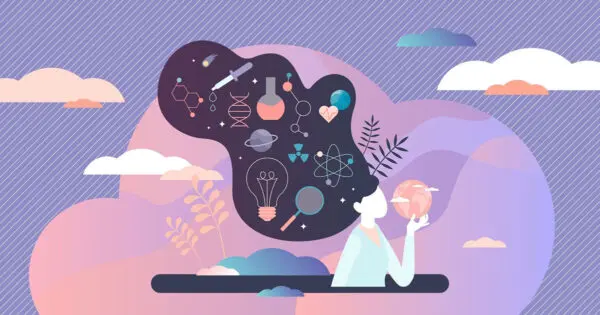Ibogaine: How to Get the Most Out of Your Experience
What is an ibogaine treatment?
Ibogaine is a psychoactive substance that causes an intense dream-like journey that can lead to profound physical and psychological changes. It is primarily used to remove withdrawal symptoms and cravings in people struggling with drug abuse. However, people seek out ibogaine for many different reasons, and the experience can be potentially life-changing for anyone. Whether you’re seeking ibogaine therapy for spiritual or therapeutic reasons or as a means of restoring health from addiction or another physical ailment, it’s crucial to adequately prepare yourself beforehand.
There have also been fatalities and adverse medical events related to ibogaine, so it is imperative that an ibogaine provider properly screens you and that you choose an ibogaine center that has medical oversight as part of their process. By taking time to prepare yourself for all aspects of your ibogaine experience, you can create the foundation for a deeply healing, restorative, and safe journey.
An iboga or ibogaine experience is a multi-layered process. To get the most out of your experience, you should have the mindset that what you do before and after an experience is equally as important as the ibogaine experience itself. It may be helpful to think of the experience as a long road trip. The starting point is you calling and vetting ibogaine centers and deciding that this is something you want to commit to. There are many incredible stories on the internet about what people have seen and experienced, but this is a truly individualized experience. No two experiences are the same.
Below are guidelines and tips on how to get the most out of your ibogaine treatment.
How to Prepare for Your Ibogaine Session
Once you’ve chosen where and with who your ibogaine treatment will occur, you can begin preparing for the experience. Ibogaine is something many people only do one time. Take the amount of time necessary for your body and mind to be as ready as possible.
Complete The Screening Process
Complete your ibogaine provider’s requirements for screening. This will usually include an EKG, liver panel, and a conversation with the provider about your medical and psychiatric history.
Set Intentions and Goals
Take time to dive deep and figure out the most important reasons you are seeking out ibogaine. What do you want to get out of the experience? What changes do you need help with in life? Do you have goals in life ibogaine may be able to help fulfill? What intentions led you to ibogaine? Write these things down. If there is anything you can do in advance to help make aftercare easier on yourself, start in advance!
Spend Time Speaking to Your Ibogaine Provider
Most ibogaine centers have a prep process they will recommend that fits your specific needs for seeking out ibogaine. Hopefully, you will choose a provider that you trust and one that has expertise — take what they say seriously!
Spend time on the phone speaking to them about what you can be doing to make things better for your experience. At the same time, ask them what you shouldn’t be doing as well. Many things contraindicate with ibogaine, and you should be given a list of what to avoid and for how long.
This also gives you time to get to know your ibogaine provider. Ask to talk to other members of staff as well. Having a dialogue and getting to know the people who will be overseeing your journey will make you more comfortable upon arrival and build trust between everyone.
Take Care of Your Body and Brain
Ibogaine is a taxing experience on the body. If you are in a place where you have been stagnant with physical activity, start taking a walk — even for 10 minutes — and doing light stretching for another 10 minutes 3-4 times a week. The better you treat yourself before ibogaine, the less harsh the physical recovery will be.
Eating healthy can help an experience go smoothly. Eat lots of vegetables, dark leafy greens, whole grains, fresh fruits, legumes, and nuts. Focus on nutrients, minerals, omega-3s, and amino acids. Most importantly, focus on electrolyte hydration. Coconut water is an excellent example of a good thing to start drinking before ibogaine.
Avoid anything taxing on your adrenal glands, heart, and liver. Avoid quinine-containing substances (i.e., grapefruit, cranberry, tonic water, bitter lemon, and bitter lime) because they prolong the QT interval.
Things to include:
- A form of magnesium that has a high absorption rate. Magnesium malate and magnesium glycinate are good examples. Epsom salt soaks are also beneficial.
- Calming GABAergics such as taurine, glutamine, magnolia bark, and theanine, can be good for the brain and may help those with anxiety or a history of stimulant use.
- Some GABAergics may need to be stopped a few days in advance or longer. Kava, phenibut, and valerian root are examples. Speak to your provider about their specific protocols for you.
- Reishi, hibiscus, and hawthorn berry are all good for the cardiac system.
- Moringa, chlorella, spirulina, and chia seeds may be good nutrient boosters.
- Trace minerals will keep you on top of staying hydrated.
- Avoid cleanses and fasts for 2-3 weeks before your treatment as they alter and deplete electrolyte levels. Hydration is very important for a safe ibogaine experience!
- Opioid users may need to use senna or psyllium husk to treat or avoid constipation.
- Probiotics and fermented foods may be good for substance users and those wanting to restore health.
- Pomegranate, turmeric, rose, and l-carnitine may also provide health benefits.
This is not meant to be a comprehensive guide for ibogaine treatment. This is a short list of ideas of what may help prepare a person. Ultimately, you need to contact your ibogaine provider and get a complete list of what you should and shouldn’t be taking. Many things contraindicate ibogaine.
Take care of your mind
Starting a journal is a great way to process what you are feeling and keep track of your process. Gratitude and mindfulness practices — even for five minutes a day — will help keep you focused and grounded.
Managing Expectations
It’s True – You May Not Have Visuals
Most people know ibogaine from online testimonials featuring people talking about their experience. Anecdotal stories range from people who see their entire life flash before their eyes, a meeting with loved ones who have died, or re-witnessing traumatic memories from a new perspective. While these experiences do happen, they don’t always happen. Some people don’t experience visuals at all, and some experience the same image on repeat or experience very abstract images. Others may only hear auditory hallucinations.
The neurological benefits of ibogaine occur whether you have a vivid and clear visual journey or not. While the “fireworks” of a dream-state can be exciting, trust that whether you see what you want to see or don’t see anything at all, ibogaine has a place for you.
Visuals or no visuals, a thought process or dialogue usually occurs while on the medicine. It’s easy to attribute working through your own issues with a bad “trip,” but try to remember that ibogaine is best when you take the time to observe what it is showing you. Take a step back and don’t try to direct the experience.
It’s common to want an easy flip of a switch toward healing or for a big realization to occur that explains all of your life’s questions — but ibogaine is best experienced with acceptance over expectations. Ibogaine is sometimes subtle in the way it communicates. However, that subtlety may show us our actions, our own mental tricks, and how our thoughts work. Ibogaine increases our consciousness over impulses, assists with discarding false layers of self-identification, and re-stacking the building blocks of our brain.
Without true surrender to the medicine, you may miss the experience for what it is. Be open to anything, and remember that many people talk about realizations and changes occurring for many weeks and months after the experience. This may be due to the long-acting mechanism of noribogaine, but regardless of reason, when an ibogaine session ends, the process is truly just beginning.
What to Expect From an Ibogaine Treatment Center
Ibogaine Treatment Intake
It is not uncommon for ibogaine centers to have a thorough intake process. They may have you complete a drug screening, they may do more EKGs or diagnostic tests, and they might even search your belongings. All of these things are designed to keep you safe and are part of a protocol that is adhered to by every client, regardless of the reason for treatment.
Take this time to ask any questions you have. Ask about the schedule, rules you need to be aware of, and what time staff goes to sleep and wakes up. Find out the process of who you can reach out to if you need something in the middle of the night or early in the morning. Most ibogaine centers have overnight staff during the acute ibogaine process and afterward, but there may be nights where everyone is catching up with rest before your treatment. However, there should be a process in place to make sure you can get what you need at all hours.
Ibogaine Provider and Staff
There should be staff on-site at all times. There should always be someone around to help in the case of an emergency or even if you need someone to talk to. Ibogaine providers have the right to set healthy boundaries between staff and clients, but there should also always be staff around in the event you need something important.
Whether it’s a doctor, paramedic, or nurse — once ibogaine is ingested, there should always be someone with medical training on-site.
What an ibogaine center should take care of
Healthy meals, transportation, a comfortable and private place to sleep and spend time, as well as a communal place to spend time should all be provided. Ideally, you have spoken to your center beforehand and asked if there is anything they don’t cover.
Ask if your center is familiar with the “patient bill of rights.” If they are not familiar with it, ask them to be. It’s also not uncommon for a center to have an “informed consent” or “mutual consent” contract that you or everyone will sign.
Lots of programs promise trips to beaches, holistic therapies, and activities in beautiful locations. The truth is that unless your program is longer than about seven days, there will not be time for most of this process to happen.
Additionally, financing an ibogaine treatment can be extremely challenging. If this is an issue for you, talk to your center to see if they offer a reduced rate waiting list or are able to take any sort of payment plan. Most centers require payment upfront and are not set up for healthcare financing. There are personal loan options that may be worth looking into for emergency situations, as in the case of substance use treatments.
What to Do With Your Free Time
If you find a more extended program, there may be time for lots of other processes/treatments other than ibogaine therapy, and despite that, you will find yourself with time alone during an ibogaine treatment.
Ask your provider in advance if they have books to read or if you should bring your own, ask about art supplies and creative projects, and bring a journal. Write down as much as you can, especially what you remember about your experience. Journaling can help you stay focused and is therapeutic.
Take walks with staff or alone. Find a way to watch sunrise or sunset, and also find a way to watch the stars at night. Connecting with nature is very complementary to the ibogaine process. It doesn’t have to be a hike up a mountain, simple time spent outside works too.
Ibogaine Treatment Tips
When going into an ibogaine treatment, take some time to yourself before the process starts.
- Spend time alone thinking about your intentions and what you hope to gain from your experience; write in your journal.
- Give your phone and/or other electronics to the treatment staff. Give an emergency contact to the provider. It’s best to stay off electronics for a couple of days. Let your provider know if you want them to connect with anyone on your behalf.
- Be prepared to surrender to the medicine and let the experience take you where it wants to.
- During difficult moments, remember to breathe.
- Don’t hesitate to ask any of the staff members to assist you with walking to the bathroom, sitting next to you during intense moments, etc. — they are there to keep you comfortable and safe.
- Laying still with your eyes closed will achieve maximum potential for visuals and may help avoid nausea as vomiting is often motion-related on ibogaine.
Ibogaine Treatment Center Discharge
Talk to your ibogaine provider about any safety protocols you need to be aware of. Ask them for advice on making the most out of the long-acting benefits of ibogaine’s metabolite, noribogaine.
If you are interested in microdosing, find out if you can bring doses home with you on the condition that you will consult with them before taking ibogaine at home.
A treatment center should never discharge someone who is still in withdrawal if they aren’t ready to go home. While a protocol that uses boosters may allow someone to make it home, if you don’t think you can function or stay away from substances after you leave, you should be allowed to complete your treatment at the center. If you are having any issues with withdrawal or medical situations that the ibogaine treatment center is not taking responsibility for, file a grievance report so that you can find immediate support.
What Do I Do After My Experience?
Some clients refer to heading home and feeling overwhelmed or shocked. Ibogaine can reveal many things to a person in such a short amount of time. It is also not uncommon for people to realize that there are problems at home that need to be addressed in order to reach their goals. Going home can be challenging.
Integration and Aftercare
There is no right or wrong way to integrate an ibogaine experience. Integrating is the act of processing everything you learned during your experience and incorporating it into your daily life to reach your goals and intentions.
Integration may look different for everyone. Some people hire an integration specialist to help guide them, other people book a stay at an aftercare center for ibogaine clients, and some people have a therapist they trust who is willing to listen. Other people seek out classes, hobbies, support groups, physical activities, etc., and largely tackle integration day by day on their own.
Ibogaine Optimal Experiences
Most importantly, remember to have fun. Ibogaine is often a lot of hard work and can be super challenging on the individual making significant changes in their lives. However, it doesn’t have to be all work. Find things you like to do and remember to relax and have fun.
There is no rush to complete an ibogaine journey or timeline of how long it should take. Some people may point out that an ibogaine journey doesn’t end, that they are still learning from their experience even a decade later. Your Ibogaine process is up to you, and taking your time will help you manage the hard stuff that might come up in the future, but this time with more tools and experience.








